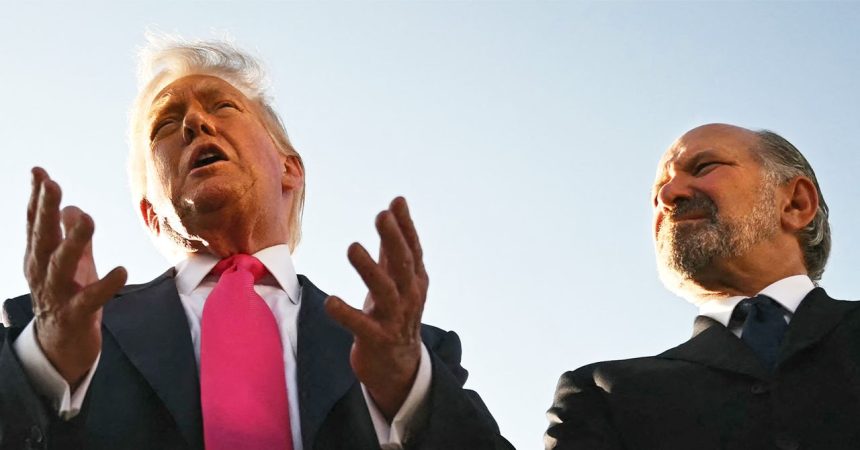The US government is aiming to take an equity stake in Intel in exchange for grants the company was already committed to receive under the Biden era CHIPS Act, according to comments US commerce secretary Howard Lutnick made in an interview with CNBC. The move is part of the government’s efforts to boost US chip manufacturing.
“We should get an equity stake for our money, so we’ll deliver the money which was already committed under the Biden administration,” Lutnick said. “We’ll get equity in return for it.” Previously, the government was discussing taking a 10 percent stake in Intel, according to The New York Times.
The deal could help the venerable chipmaker fund its US-based semiconductor fabrication plants, or fabs, which have required billions of dollars to construct and maintain, even as demand for Intel chips has waned in recent years. Some chip industry experts and members of the Trump administration say that keeping Intel afloat is essential to US national security, because it lessens the country’s reliance on chipmakers overseas.
But analysts and one notable economist say a potential tie-up between Intel and the US government could present a conflict of interest and may not result in the kind of domestic chipmaking industry the administration is angling for.
“It’s not the right policy to have the US government own things, to have privatization in reverse,” says Stephen Moore, a visiting fellow at The Heritage Foundation and a former senior economic adviser to Trump’s 2016 campaign. “That’s similar to Europe’s industrial model, and we haven’t done that often here in the US, because a lot of it ends up failing.”
Government Intervention
The US government has some history of investing in the private sector. Moore cites a 1980s program called the Synthetic Fuels Corporation, a federally directed multibillion-dollar investment in companies producing liquid fuels from coal, oil shale, and tar sands. It was hailed by President Jimmy Carter as “the cornerstone of our energy policy” and had fallen apart by 1986.
Then, in the wake of the 2008 financial crisis, the US government stepped in with multibillion-dollar bailouts to stop US automakers and some banks from going under. Those funds were issued either through the Troubled Asset Relief Program, in which the US Treasury Department bought up or guaranteed toxic assets, or in the form of bridge loans. Many were eventually repaid.
More recently, the Department of Defense agreed to fund a US-based rare-earth magnet company, MP Materials, via equity and loans, in order to expand production and decrease the country’s reliance on China. The deal would in theory give MP Materials the capital to increase its manufacturing capacity from 3,000 to 10,000 metric tons.
Moore says the ideal scenario is that these arrangements between the government and private industry have an end point. “It should be an agreement to own a short-term stake and then divest,” he says.
But the current Trump administration has been taking some of these public-private business dealings a step further: In June, the administration approved a partnership between Japanese steel company Nippon Steel and Pittsburgh-based US Steel, dependent on a national security agreement and a so-called golden share provision. The government insisted that it have a say in US Steel’s company decisions, including board appointees and future relocation plans. (This deal was also designed to help the US compete with China on steel production.)
Read the full article here









